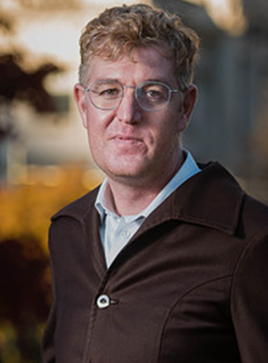COVID-19

Electric youth: How research is helping young people recover from the COVID-19 pandemic

It's a tough time to be young.
Even though statistics show that younger people are far less likely to die from COVID-19, the pandemic is still having far-reaching consequences in their lives.Footnote 1 And while some bad actors make headlines for ignoring public health guidance and driving new outbreaks, far more young people are doing everything they can to protect their communities—but they're already struggling to deal with the social and economic impacts of those efforts.
"The pandemic has changed everyone's realities, but some changes are very distinct for younger people," explains Dr. Rod Knight, a Research Scientist with the BC Centre on Substance Use and an Assistant Professor in the Department of Medicine at the University of British Columbia (UBC). "There is a lot going on, whether you contract the virus or not, and we already know anecdotally that people are being negatively affected in different ways and to different degrees. But we need data, not anecdotes, so all of this still needs to be documented."
Documenting these details is the first step in learning from them, and Dr. Knight is leading a new study to do just that. Along with partners across Canada and in France, his team will track the public health measures that are impacting the lives of young people (under the age of 30) in both countries, for better or for worse. The team expects to learn a lot about the negative outcomes associated with job losses, disruptions to education and training opportunities, delayed entry into the workforce and stalled careers, social isolation, loss of support networks, and difficulties with dating and relationships—but they also hope to uncover which types of programs and funding have yielded the biggest benefits.
"Our working hypothesis is that large-scale government interventions really will help mitigate the worst effects on young people, but it's unlikely that any government has gotten things 100% right," he says. "We hope to be able to show which investments and programs help, but we also want to present data on the realities in which young people are living. That data will help policy makers who need to know what is going on in their communities and the extent to which health outcomes have been affected, but it will also help people to advocate for what they need. Data is power."
Canada and France represent two natural experiments for this work. They are both high-income countries that enacted relatively extreme public health measures to curb the impacts of the pandemic and have publicly funded health care systems. The important contextual differences between the countries, such as the types and duration of economic/employment support and community-based programs offered to citizens, will also provide opportunities for the team to compare results and identify which actions worked well for which groups and why. With online surveys in both countries, the team will collect information about the magnitude of the socio-economic impacts on young people, along with insights into the state of their mental health, changing patterns of substance use (such as increased alcohol consumption), and sexual health experiences.
"We are focusing on young people, but that's certainly not because people over the age of 30 are notstruggling right now," Dr. Knight continues. "We need all the studies about different communities and different age groups that we can get as we continuously adapt and the pandemic progresses. This is about having as much information as possible so that we don't leave vulnerable people behind when we, as a country, implement new policies, programs, and other types of support."
To help ensure that the team collects useful and appropriate information, a Youth Advisory Committee that works closely with Dr. Knight's team will provide input into the survey designs and interpretation of results. When Dr. Knight's team is ready to share information with national and provincial policy makers next spring (2021), the advisory committee members will also help with translating the results into content that is both useful and meaningful for other young people.
"We don't want to collect this information and then walk away," he emphasizes. "We would love to see young people use it to become champions for the interventions that work well—and to remind us to work harder to fix the ones that don't."
- Date modified: